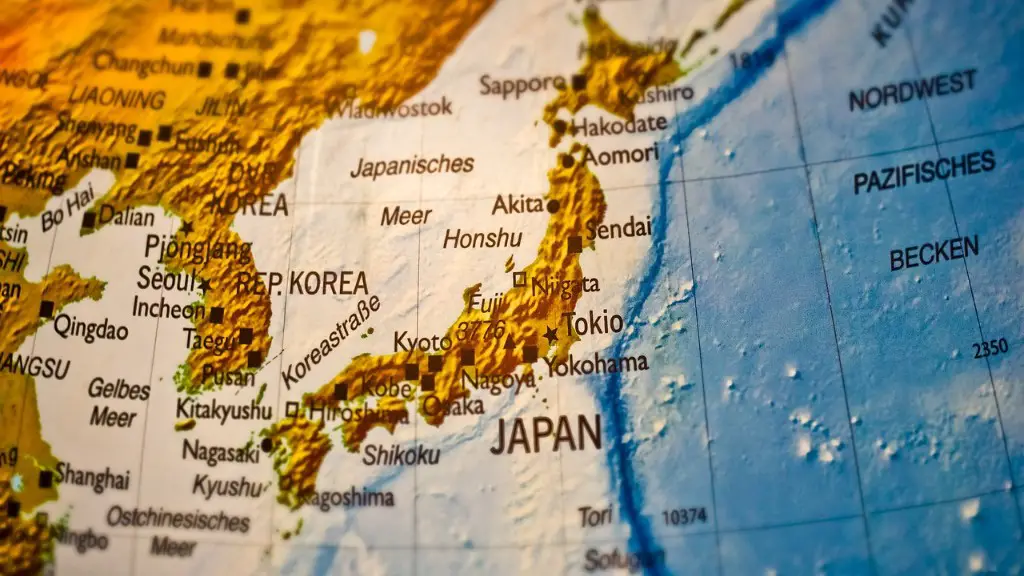North Korea’s Aggression
North Korea has been garnering negative publicity for its aggressive posturing in the recent past. The rhetoric coming from Pyongyang has ramped up tensions with its South Korean counterpart as well as other regional powers, notably the United States. In addition, North Korean leader Kim Jong Un has been instrumental in the country’s nuclear tests and ballistic missile launches. As a result, many international leaders are worried that war with North Korea is likely.
Military analysts are becoming increasingly concerned, suggesting that military aggression from Pyongyang should not be taken lightly and that the potential consequences must be addressed. This is especially true given North Korea’s advanced missile technology, as well as its nuclear weapons program, which have both proven difficult to address diplomatically. Despite previous sanctions, Pyongyang has shown little sign of giving up these programs.
The Risk of Similar Conflicts
The potential for a North Korean conflict has brought concerns of a larger war to the forefront. North Korea’s potential to cause greater destruction has been highlighted by political and military leaders alike. As former United Nations Chief Ban Ki-Moon notes, a war between two or more countries would likely cause “unimaginable levels of destruction,” which could ripple across the entire region. Such a war also has the potential to affect global economic and political systems and could bring with it the risk of similar conflicts occurring in other tensions regions worldwide.
Apart from the world’s concerns, North Korea’s neighbors face an even more direct risk. South Korea’s President has reportedly requested additional military resources to protect civilian and government leaders. The country’s proximity to North Korea makes it vulnerable to potential war, and Seoul has already taken steps to ensure the safety of its citizens in such a scenario. Meanwhile, Japan has also been on alert, with reports suggesting that the government has increased defense budgets and made preparations to mitigate the impact of a possible conflict.
North Korea’s Motives
Kim Jong Un’s motives for his hostile actions remain unclear. While some suggest it is an effort to protect the country from foreign powers andassert control in the region, others point to internal domestic issues within the country, such as economic insecurity or even regional ambitions. Whatever his motives, analysts agree that any attempt to interfere in North Korea’s domestic affairs could have far-reaching consequences.
The United States has a vested interest in the region because of its longstanding practice of “strategic patience.” In this approach, Washington has worked to encourage North Korea to engage peacefully with the international community and to accept international demands, such as ending its nuclear program. In addition, Washington has sought to use its influence over Seoul to deter provocations from Pyongyang and to encourage a diplomatic solution to the dispute.
Sanctions Against North Korea
Since the beginning of 2017, the United Nations Security Council has implemented a series of increasingly harsh sanctions against North Korea in an effort to pressure the country into changing its behavior. These sanctions include restrictions on various exports, including seafood and textiles, along with the imposition of an asset freeze and travel ban on certain North Korean citizens.
However, these sanctions have had limited success. North Korea continues to carry out missile tests and launchthreats against its neighbors, prompting further sanctions from the international community. Kim Jong Un appears determined to continue his weapons program, despite the economic and political costs.
The Impact Of Other Countries
The United States and other international powers have become more involved in efforts to prevent a war with North Korea, but the effectiveness of these efforts has been questionable. While some nations have been quick to condemn North Korea’s threats, other countries have been less willing to step in and bear the potential risks of confrontation.
China, a key ally of both North and South Korea, is one of the countries that has been hesitant to involve itself in the dispute. Despite its economic and political clout, China has instead suggested that the two countries should focus on peace talks to resolve the situation. This reluctance has been seen as a failure on the part of Beijing to take decisive action to deescalate the crisis.
The Risk Of Conflict
The situation in North Korea shows no signs of being resolved peacefully and the risk of conflict is ever-present. The United Nations and other international powers must continue to employ stringent sanctions against North Korea, as well as diplomatic channels to try and avert a conflict. It remains to be seen whether these efforts will be successful in preventing a war with North Korea.
Conclusion
The risk of war with North Korea is now more real than ever. North Korea’s aggressive posturing and refusal to negotiate have prompted harsh sanctions from the United Nations, but have had little effect on the authoritarian country’s behavior. Furthermore, both North Korea and its allies are vulnerable to the potential consequences of a war and international powers andthe United Nations must act quickly in order to prevent one.



